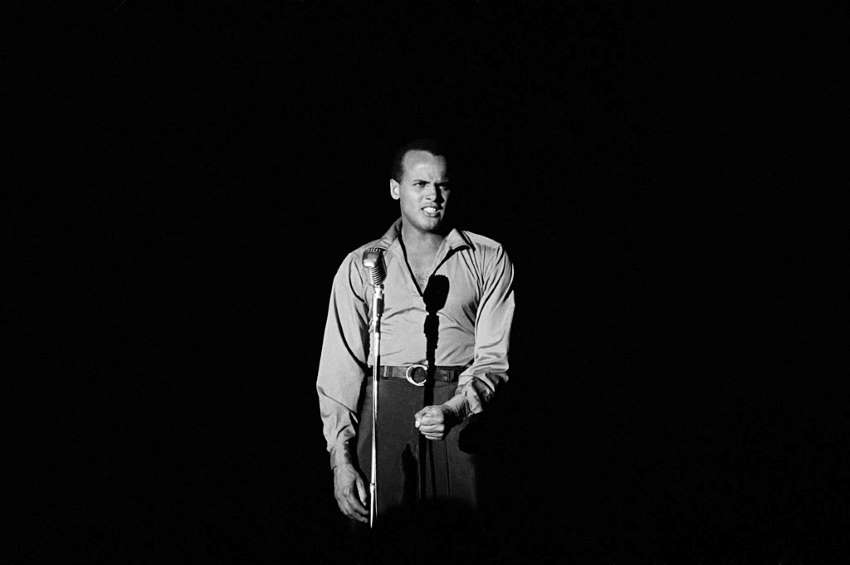HARRY BELAFONTE, the iconic American singer, actor, and civil rights activist, has passed away at home in Manhattan aged 96. His death marks the end of a remarkable career that spanned over seven decades and made him a cultural and political icon.
It’s been reported that he died of congestive heart failure. His wife, Pamela, weas by his side.
Born Harold George Bellanfanti Jr. on March 1, 1927, in Harlem, New York, to Caribbean immigrant parents, Belafonte grew up in poverty during the Great Depression.
Despite the challenges he faced, he discovered a love for music and began performing in his teens. He later adopted the stage name Harry Belafonte and went on to become one of the most successful and influential musicians of his time.

Belafonte’s breakthrough came in the early 1950s when he recorded the Calypso album, which became the first LP in history to sell over one million copies.
The album featured his signature hit, “Day-O (The Banana Boat Song),” which has become a cultural touchstone and an enduring symbol of his legacy.
Belafonte’s music blended traditional Caribbean rhythms with American folk and pop influences, creating a unique and distinctive sound that captured the spirit of the era.
His success as a musician paved the way for a career in film and television.

He starred in numerous movies, including Carmen Jones (1954), Island in the Sun (1957), and Buck and the Preacher (1972), and he hosted his own variety show, The Harry Belafonte Show, in the late 1960s.
Belafonte was also a passionate activist and used his platform to advocate for civil rights, social justice, and humanitarian causes.
His activism was inspired by his own experiences of racism and discrimination. He was a close friend and confidant of Martin Luther King Jr. and played a key role in the civil rights movement.

He helped organise the march on Washington in 1963, where King delivered his famous “I Have a Dream” speech.
Belafonte was also a vocal opponent of apartheid in South Africa and supported the anti-apartheid movement through his music and advocacy.
Belafonte’s legacy extends far beyond his music and activism. He was a pioneer who broke down barriers and paved the way for generations of artists and activists who followed in his footsteps. He was also a beloved figure who touched the lives of millions of people around the world with his talent, charisma, and commitment to social justice.
In recognition of his contributions, Belafonte received numerous awards and honors throughout his life, including a Kennedy Center Honor, a National Medal of Arts, and a Grammy Lifetime Achievement Award.
His impact on music, film, and politics will be felt for generations to come, and his legacy will continue to inspire and empower people around the world.
Margaret Busby appointed President of human rights organisation


Comments Form
1 Comment
What a life, and a contribution for a African-Caribbean heritage man, who lived at a time when skin-colour discrimination and State supported violent racism was normal in all parts of the United States.
Mr HARRY BELAFONTE, the iconic American singer, actor, and campaigner for U.S. skin-colour justice, used his high public profile to stand with the African-American people’s demands for skin-colour justice.
HARRY BELAFONTE, was in the same acting class with Mr Marlon Brando, and others who created high public profiles.
HARRY BELAFONTE, lamented bitterly the complete failure of African-American men and women, who were given Elected Public Office, to use their public position to benefit; guide and advocate on behalf of Americas’ African-American people.
The same is true today of England’s African-heritage Elected Parliamentarians and Peers.
It is awful to knowledge African-American communities today are weaker, and without political leadership; whilst African-American people had greater leadership and cohesion in the 1960s.